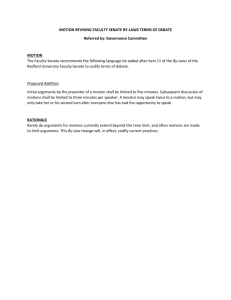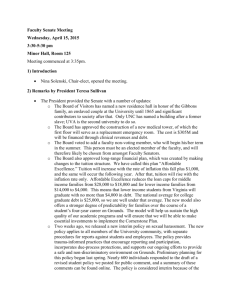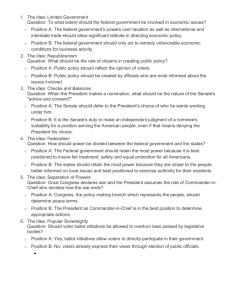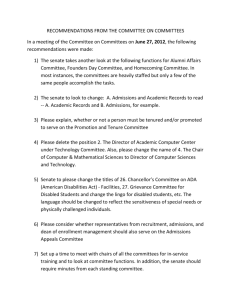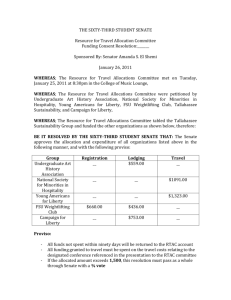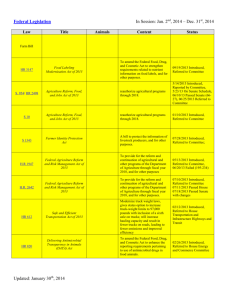Client WU Draft
advertisement
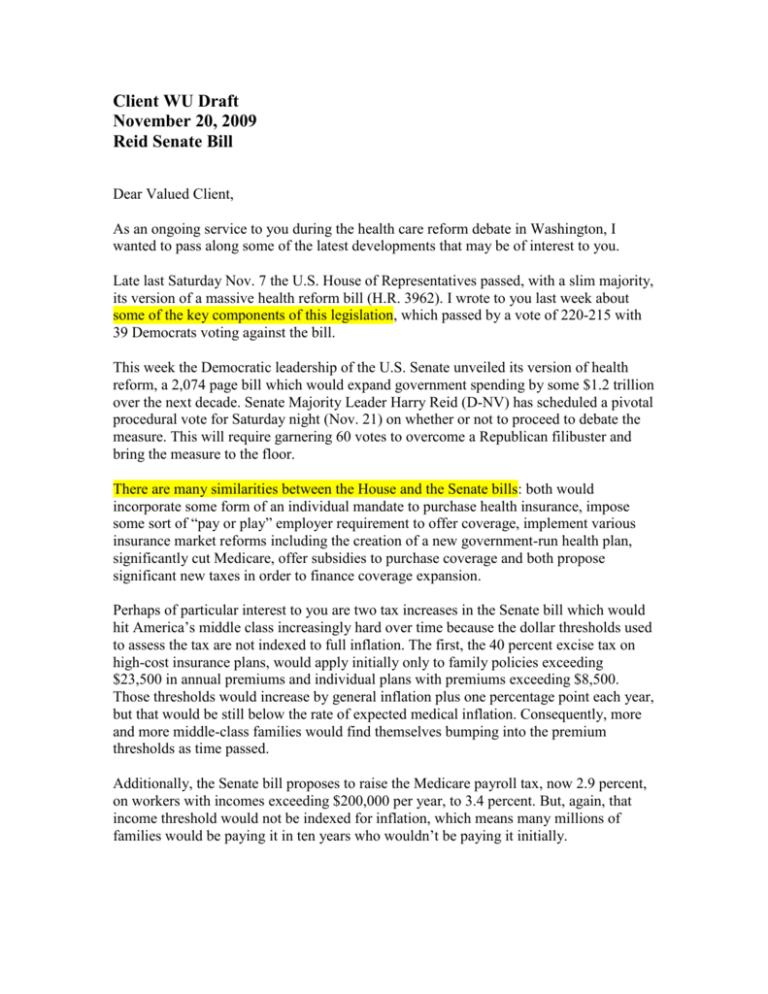
Client WU Draft November 20, 2009 Reid Senate Bill Dear Valued Client, As an ongoing service to you during the health care reform debate in Washington, I wanted to pass along some of the latest developments that may be of interest to you. Late last Saturday Nov. 7 the U.S. House of Representatives passed, with a slim majority, its version of a massive health reform bill (H.R. 3962). I wrote to you last week about some of the key components of this legislation, which passed by a vote of 220-215 with 39 Democrats voting against the bill. This week the Democratic leadership of the U.S. Senate unveiled its version of health reform, a 2,074 page bill which would expand government spending by some $1.2 trillion over the next decade. Senate Majority Leader Harry Reid (D-NV) has scheduled a pivotal procedural vote for Saturday night (Nov. 21) on whether or not to proceed to debate the measure. This will require garnering 60 votes to overcome a Republican filibuster and bring the measure to the floor. There are many similarities between the House and the Senate bills: both would incorporate some form of an individual mandate to purchase health insurance, impose some sort of “pay or play” employer requirement to offer coverage, implement various insurance market reforms including the creation of a new government-run health plan, significantly cut Medicare, offer subsidies to purchase coverage and both propose significant new taxes in order to finance coverage expansion. Perhaps of particular interest to you are two tax increases in the Senate bill which would hit America’s middle class increasingly hard over time because the dollar thresholds used to assess the tax are not indexed to full inflation. The first, the 40 percent excise tax on high-cost insurance plans, would apply initially only to family policies exceeding $23,500 in annual premiums and individual plans with premiums exceeding $8,500. Those thresholds would increase by general inflation plus one percentage point each year, but that would be still below the rate of expected medical inflation. Consequently, more and more middle-class families would find themselves bumping into the premium thresholds as time passed. Additionally, the Senate bill proposes to raise the Medicare payroll tax, now 2.9 percent, on workers with incomes exceeding $200,000 per year, to 3.4 percent. But, again, that income threshold would not be indexed for inflation, which means many millions of families would be paying it in ten years who wouldn’t be paying it initially. It also bears mentioning that the legislation is significantly front-loaded, with many tax hikes and Medicare cuts occurring in the first few years, but new government subsidies only starting after 2014. The vote on Saturday is only the beginning of the debate on the Senate bill. Consideration and a lengthy amendment process is expected to last several weeks and will likely begin in earnest on November 30. From my perspective, to be successful and sustainable, health care reform must not only expand coverage to the uninsured, but it also must make health care more affordable for everyone. Many provisions in the Senate bill, including allowing people to wait to buy coverage until they are sick, limiting age discounts for the young and healthy, and a new $6.7 billion annual insurer tax, will only increase costs for millions of Americans. I look forward to being active in urging my Senators to stand for bipartisan and workable reforms that are fiscally sustainable and reduces medical costs for everyone, and I urge you to be engaged as well. What happens in this legislative battle will significantly affect the costs of and access to medical care and insurance for many years to come. Sincerely,


